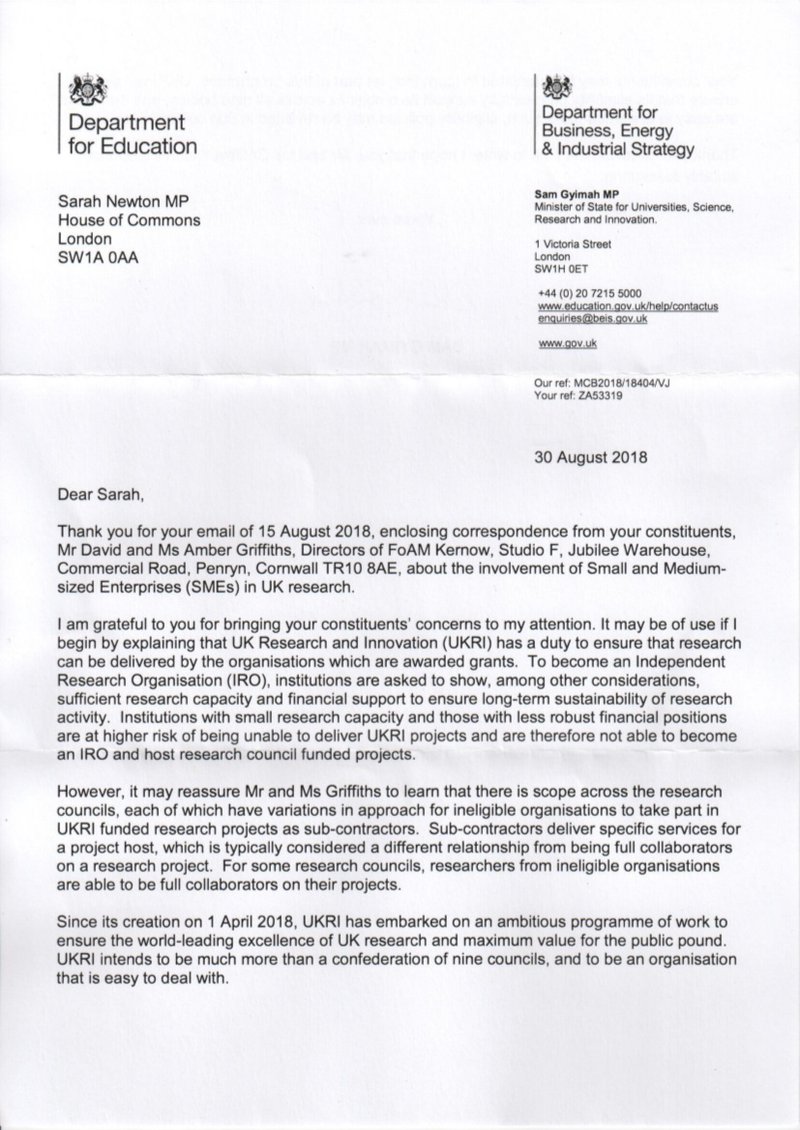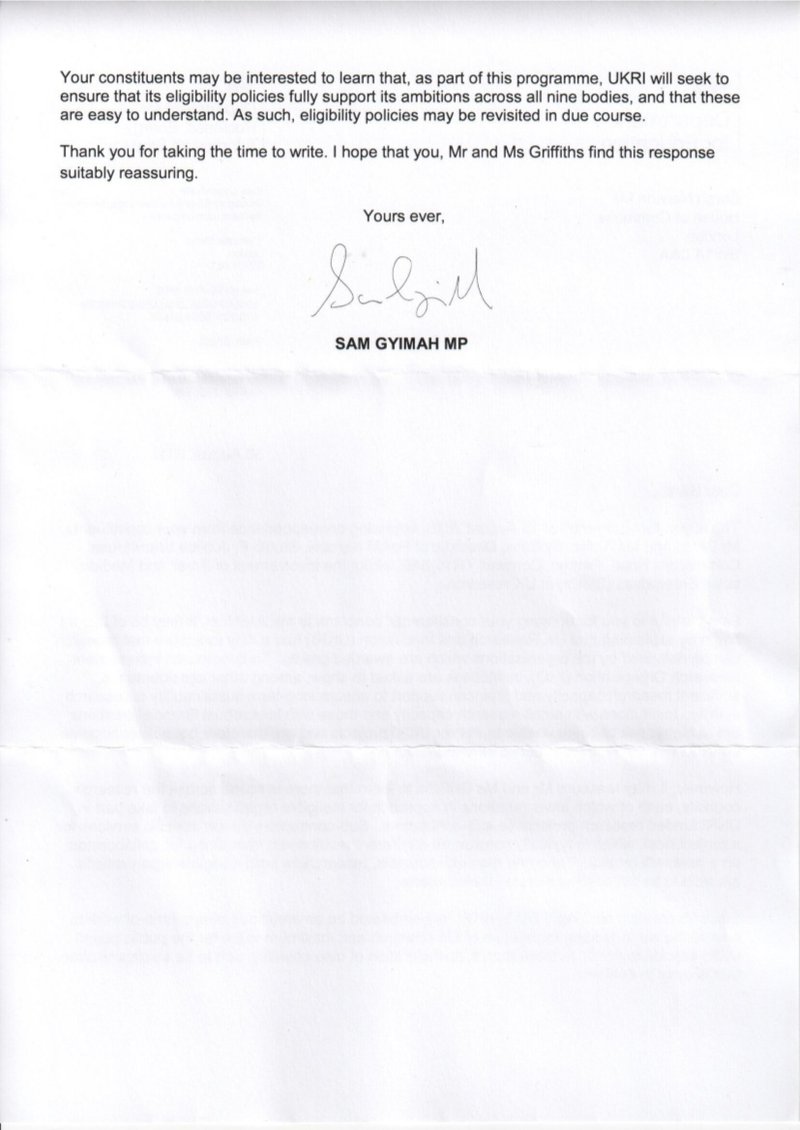Our letter to Sarah Newton MP for Truro and Falmouth was forwarded to Sam Gyimah MP, Minister of State for Universities, Science, Research and Innovation. A few weeks ago we received his reply:


We have now replied to this letter with the following:
Dear Sarah,
Many thanks for your work on this issue, and forwarding the email to Sam
Gyimah MP, Minister of State for Universities, Science, Research and
Innovation.
Unfortunately, while carefully re-iterating the current situation as
already outlined in our letter, Sam Gyimah MP failed to address any of
the clear contradictions that exist with aims stated in both the
recently published UK Industrial Strategy white paper and the UKRI
Strategic Prospectus regarding encouraging UK SME businesses into an
inclusive research environment (identified as having less ability to
"introduce new products and processes than their European competitors").
Regarding our two points of issue:
1. Inconsistencies between UKRI councils
The unhelpful polarisation of entities into extremes of "industry" and
"university", peculiar to UK government understanding - means that
subcontracting entails being lumped in to a position where we are
forbidden to publish our work on a research project or own IP we create
in the course of a project.
As this is unevenly applied across research councils, we hope that this
would represent a relatively minor change to begin to achieve the aims
of the UK Industrial Strategy. In order to achieve truly innovative
research in an uncertain future, there is a need to be partnering
universities with innovative institutions, non-profits and social
enterprises. There does not seem to be any policy or reasoning stated by
Sam Gyimah MP to otherwise defend this cumbersome and inconsistent
categorisation.
2. Inflexible categorisation regarding SME involvement as project
partners in research.
It is noteworthy that Sam Gyimah MP upholds the "gate keeping" of large
institutions by other large institutions as sole providers of UK council
research, where in every other circumstance the efficiency and agility
of small institutions are championed by the current government.
These distinctions are furthermore specific to UK government funding,
absent from either EU level research funding, or the UK charity sector
who are responsible for delivering comparative or larger scale research
projects.
Kind regards,
Dr Amber Griffiths
Director
David Griffiths
Director

